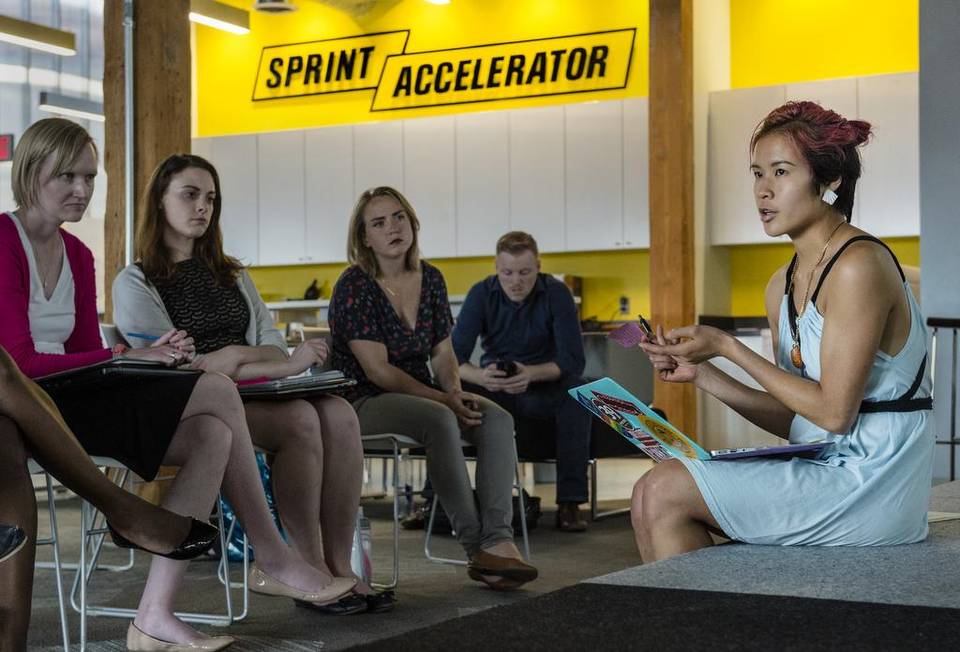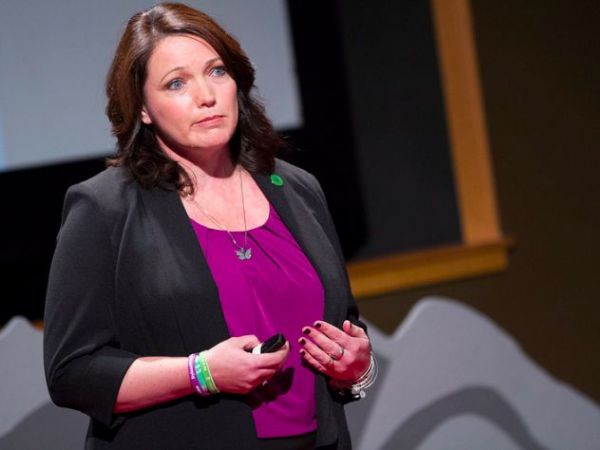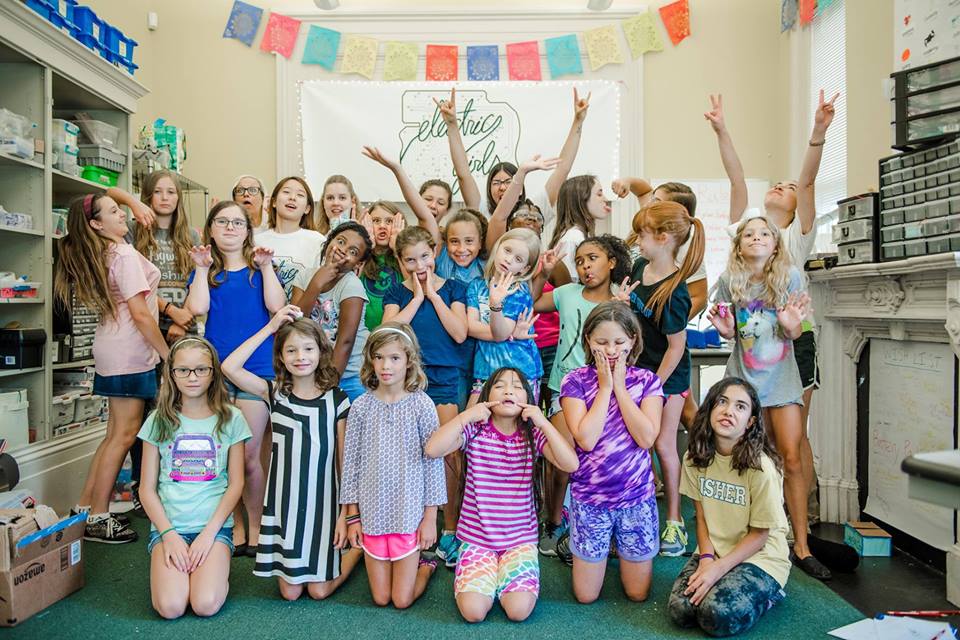By Joe Robertson
The Kansas City Star.
You have 90 seconds to fast-pitch your idea in the swarming world of education entrepreneurs. Go.
Maybe you took your shot at a competition in a Crossroads event center with a cash bar and hors d’oeuvres.
Or maybe you grabbed at the shirttail of one of the venture capitalists the Kauffman Foundation brought to a conference to verse an audience of mostly Teach for America alums in the scrambling ways of business.
They’re talking “creative destruction” and “elegant failure.” “Ideas come hard. Create stress.”
But big changes in education come with a caution: When that daring idea busts or, even riskier, when that groundbreaking public charter school fails, schoolchildren get caught in the wind.
“Obviously, there’s a tension here,” said Richard Kahlenberg, a senior fellow at The Century Foundation, a left-leaning think tank. “Applying market principles might fly when creating a new detergent, but it doesn’t necessarily work with children.”
There are more entrepreneurs in education than ever before because there’s more opportunity than ever before.
Think about it, said Michael Staton, a partner at Learn Capital who joined the Kauffman Foundation panels. Teachers no longer find themselves constrained to top-down classroom changes from school district administrations dealing with entrenched textbook giants.
Emerging digital platforms and social networks distribute products and programs into a single computer untethered to a district’s system.
“Distribution’s not the challenge anymore,” Staton said. If it looks good, “a teacher can try it.”
The question, said Rick Hess, a scholar at the right-leaning American Enterprise Institute, “is not whether education entrepreneurship is imperfect. Because it is.”
“When you let smart and passionate educators, parents and entrepreneurs try to solve problems, it presents challenges,” Hess said. “If it does not work well, it can become fragmented.”
But the better question is, he said, do we believe that the “big (education) system, created over time,” can improve “systematically”?
That’s another imperfect proposition. Some systems, such as those in Boston and Austin, Texas, have shown strong improvement, Hess said. And Kansas City’s may be showing some promise. But you’re also risking taking “decades trying to make Kansas City schools better.”
“We should spread our bets around,” he said.
Sorting out the potentially game-changing innovators can be overwhelming, however, with so many ideas sounding in administrators’ ears.
buy Accutane generic https://buynoprescriptionrxonline.net over the counter
In the past, “being an entrepreneur was a mark of achievement,” said Bill Mullins, a former consultant in defense industries now helping some Kansas City charter schools in technology programs.
“Now you can create a product with no evidence it is a tenable one and throw up a website in 48 hours,” he said. “… Then we have events and hand out prizes.”
Kansas City’s Lean Lab, an incubator for educators’ ideas, warns the eager entrepreneurs that there aren’t true shortcuts.
Former East High School math teacher Aditya Voleti in Kansas City is learning that lesson as he develops and markets his idea.
His “pain point” in need of a solution arose as he taught high school math to the many new immigrant students in his East classroom.
He needed to know more quickly what skills students had, beyond the students’ levels of English proficiency, to better serve them in class.
He began his work, then earned a fellowship to develop his idea at the nonprofit Lean Lab. There he was pushed to spend many days researching the history of the school system he hoped to serve, building context for his idea and interviewing dozens of teachers and administrators to better understand the problems he wanted to solve.
His work drew the attention of Lumen Touch, an education information systems developer in the Northland that has put Voleti to work designing his system and other programs.
Digital programming can help teachers be more flexible, Voleti said, creating assignments “from scratch” in a system where teachers control the rigor based on each student’s skills.
Schools are under intense pressure to perform and are hungry to sort through the rapidly evolving ways to deepen their data, said Lumen Touch’s chief education officer, John Vandewalle.
“There is huge turmoil right now,” he said. “Nobody knows which way to turn.”
Lean Lab co-founder Katie Boody recognizes the risks in hasty runs to the education market.
The lab’s program draws on Stanford University’s “design thinking” model and Harvard’s “lean startup” strategy.
The entrepreneurs stay focused on “human-centered design” buoyed with “empathy,” she said.
“That’s not what you always see in education,” she said, “where (ideas come) top-down from a curriculum director working with (textbook giants) Pearson or McGraw-Hill.”
Enthusiasm runs high.
At the Kauffman Foundation’s entrepreneurship conference, the onlooking hopefuls heard panelists promise rapid changes possible in education today can bring “equity in our lifetime.”
They were urged to “change the trajectory.” To be “the mutation that breaks the code.” We are in the midst, they were told, “of a generational shift.”
At the Lean Lab, where participants tweeted to the hashtag “#Powerof KC,” educator Catina Taylor was sharing with the rest of the entrepreneurial fellows her research toward her dream of an independent school.
“I’m crazy enough to believe people will invest in it,” she said. “Why not have some imagination and believe in magic?”

















































































































































































































































































































































































